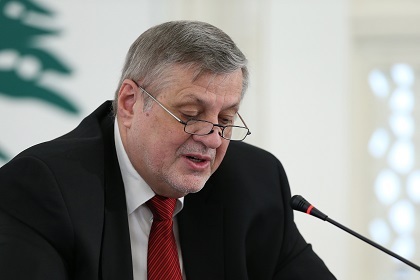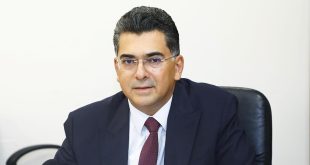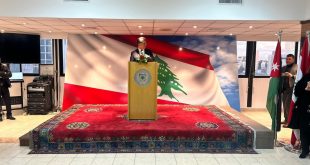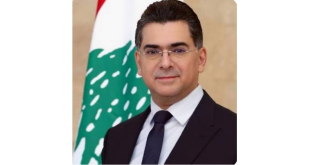U.N. Special Coordinator for Lebanon Jan Kubis on Monday announced that the U.N. in Lebanon is preparing a COVID-19 funding appeal, to be issued this week, to support the national COVID-19 response.
“The appeal is divided into four priority areas: 1. Supporting the preparedness and response capacity of the Lebanese health system in coping with COVID-19 outbreak; 2. Strengthening the engagement and communication with communities, and support for good hygiene practice; 3. Prompted by the Syrian war and humanitarian crisis, delivering critical assistance and services to most vulnerable communities… and 4. Expanding support to growing numbers of vulnerable Lebanese population groups not covered under the LCRP (Lebanon Crisis Response Plan),” Kubis said.
He was speaking at a Baabda Palace meeting for the International Support Group for Lebanon which was held at the request of President Michel Aoun. During the meeting, Aoun called on international donors to provide financial assistance to the crisis-hit country as it grapples with a severe economic downturn compounded by the coronavirus.
“The United Nations welcomes the first steps taken by Lebanon so far to start addressing the crisis and its impact on the population. We further encourage in particular the efforts to ensure all population groups across the country can have access to testing and treatment through the network of hospitals designated for the response,” Kubis added.
He said the health response needs to be “coherent and unified under the oversight of the Government of Lebanon and offer the same level of services to all patients, regardless of their legal status and nationality.”
“In support of the government efforts, the U.N. is strengthening the engagement with communities, to provide evidence-based guidance about COVID-19 prevention, mitigation and care, to continue delivering critical assistance and services to most vulnerable communities, including primary health care, protection, shelter and sanitation,” the U.N. official added.
He noted that for the U.N., the situation around Syrian but also Palestinian refugees remains a priority.
“UNHCR and UNRWA are working on specific plans to cater for population living in overcrowded locations, i.e. camps, collective shelters and informal tented settlements. This includes provision for dedicated isolation areas, which can also be repurposed to receive patients with mild symptoms. Expansion of existing hospital capacity is also planned for more severe cases,” he said.
“The United Nations and partners are refocusing their work to best support the Government of Lebanon and the people of Lebanon in the current circumstances. Now is the time for collective and coordinated engagement,” Kubis urged.
In conclusion, he emphasized “solidarity and commitment of the U.N., of key members of the international community to continue supporting Lebanon and its people, its development, unity, security, and stability.”
The International Support Group has brought together the United Nations and the governments of China, France, Germany, Italy, the Russian Federation, the United Kingdom and the United States, together with the European Union and the Arab League. It was launched in September 2013.
Naharnet
 Lebanese Ministry of Information
Lebanese Ministry of Information



